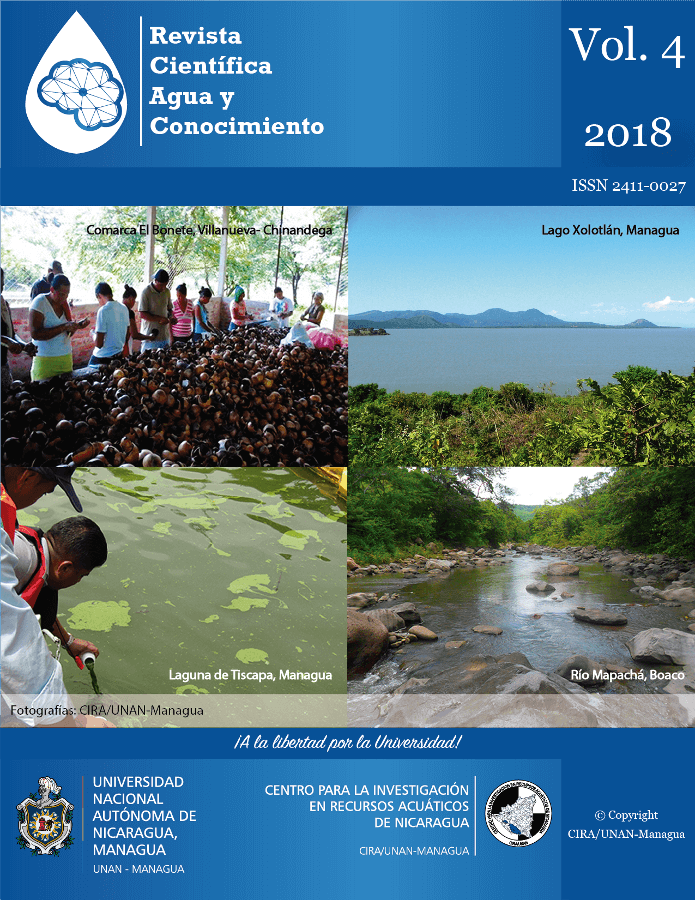Ecohidrología para mejorar el gerenciamiento de agua potable y la resiliencia de ecosistemas ante el cambio climático – Caso de estudio del Río Likus, Región Atlántica Norte de Nicaragua.
Abstract
Climate change will exacerbate its adverse effects on drinking water supply systems, making it necessary to adopt integrative approaches such as Ecohydrology to increase resilience in ecosystems, especially those that provide direct ecosystem services, such as drinking water sources. The main threats to the natural functionality of the water supply source of the project (Likus River) were identified through a hydrogeomorphological evaluation (IHC Index). This gave as results that the morphology of the fluvial system is very close to the natural state and that the critical component is the loss of vegetation throughout the riparian corridor in the Likus River segment near the town of Sisin, Puerto Cabezas. The predictions obtained for the next 50 years of the 16 global circulation models used, project increases in the average temperature (2 to 3 ° C), as well as decreases in the average annual rainfall (5% to 15%) for the area of the North Atlantic region of Nicaragua. This would imply a decrease in water availability, limiting the amount of water used by water treatment facilities and potential degradation of water quality of the River Likus.
Keywords: Ecohydrology, Resilience, Climate change.


